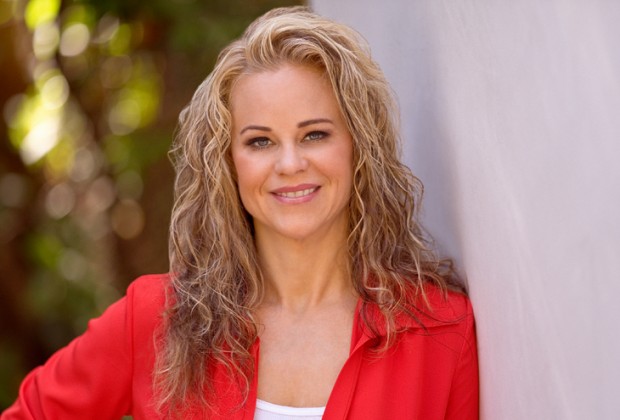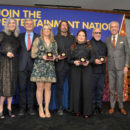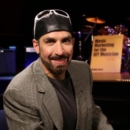BACKGROUND
Named one of the industry’s top music lawyers by Billboard and The Hollywood Reporter, Dina LaPolt ran the concert committee at her college and managed acts for KISS drummer Eric Carr’s company, Streetgang Productions, before moving to San Francisco and promoting all-ages punk shows. Later, she attended John F. Kennedy School of Law and, among other legal accomplishments, negotiated deals on behalf of the Tupac Shakur estate.
Clients: Steven Tyler, deadmau5, Mick Fleetwood, Chaz Bono, Black Veil Brides, Family of the Year, Dre Moon, Smidi, Haley Reinhart, Kris Trindl, Brillz, Steve James, Botnek.
On Stage to Off
I was a musician. I never had plans to go to law school. I was 27 and tired of living in a van, making macaroni and cheese powered by a cigarette lighter on a hot plate. We got picked to be in this music business conference as a showcasing band. The band didn’t want to go to any of the panels, but I did. I picked a panel called “Negotiating Record Deals.” There were three guys—one had tattoos, one had a ponytail and the other had earrings. I waited in line to talk to the guy with earrings, because he impressed me the most.
He said, “I’m not taking unsolicited demo tapes.” I was holding a cassette tape. I said,
“Oh, I’m not talking to you about this. I want to know how to go to law school.”
“First, go to college and get a bachelor’s degree.”
“I have one in music. Does that count?”
“I don’t know, but you should call the law schools.”
I called them all. If you had a bachelor’s degree, you could take the LSAT. I didn’t do very well, but I met this girl who did worse than me, but she got in. She said, “Because I’m black, I think they picked me.”
“Well, I’m gay. They should pick me.”
“You should tell them that.”
I called the dean: “You need to let me in, because I’m gay and you need more gay lawyers.” He said, “You’re right. I’m going to let you in and at the end of the year we’re going to give you an exam. If you pass, you can continue.” Thus, my law career began.
Getting Hired
I started working for a music lawyer named Deena Zacharin. At the time, she represented Cake and Susan Tedeschi. I convinced her to let me be her intern. She told me I had to move to L.A. and I didn’t want to go, so she fired me.
I was depressed, but my ex-girlfriend’s sister called and said, “You should move in with me. I’m Miss June; I’m on the cover of Playboy.” No one would hire me. I was having a great time, but I couldn’t get a job. Miss June was asked to do a TV show, Hard Copy. While I was on set, I met Anthony Benson, who said, “You should meet our lawyer.” I ended up being his intern, but he was a disaster. Within three years, I was running his entire practice and he wasn’t even coming to work. When I left, 80% of his clients came with me and LaPolt Law was born.
Office Space
The clients who came with me were Ed McMahon, the estate of Tupac Shakur, Wild Orchid, Andy Vargas and all the Playboy Playmates. I didn’t have an office, so the general council for the Tupac estate called Jimmy Iovine, because we’d set up a joint venture to release Tupac’s music. He said, “Dina needs to stay there until she finds office space.” I moved in with four employees on the third floor of Interscope. I was there for three weeks until I found office space in the 9000 building, and I’ve been here ever since.
Thug Life
Tupac estate was work. They had been sued a lot, because Tupac didn’t have agreements memorializing anybody’s rights. I settled a lot of litigation, learned about the Copyright Act—focused on learning. I wasn’t in the clubs. I wasn’t going to shows. I was taking classes at UCLA. The Beverly Hills Bar Association had lunches every month on different entertainment topics; I went there religiously. The California Copyright Conference met every Tuesday every month for nine months a year. I made friends with people like Don Passman. These people would teach me things.
When we finally got ownership of Tupac’s masters back from Death Row, Interscope wanted to do a multi-record deal. I called Tupac’s mom and said, “I don’t really know how to structure this huge deal.” She said, “Just hire whoever you need to get it done.” I called Don Passman and he came aboard. He’s a gracious, amazing man, because anybody else would’ve tried to steal my client.











